Abstract
The properties of a nuclear preparation from rat liver and thymus are described. (1) Nearest-neighbour analysis after incorporation of 32P-labelled nucleotide residues from dATP, dCTP, dGTP, dTTP and arabinofuranosyl analogues of CTP and ATP shows template-dependent DNA synthesis. (2) Where primer termini are limiting, incorporation of arabinofuranosyl analogues of AMP and CMP residues proceeds to a limit indicating that both of these analogues are DNA chain terminators. (3) No large differences have been found between the priming potentialities or the intrinsic DNA polymerase activities of nuclei from resting or regenerating liver and the relationship of this DNA synthesis in vitro to DNA replication or repair in vivo is briefly discussed.
Full text
PDF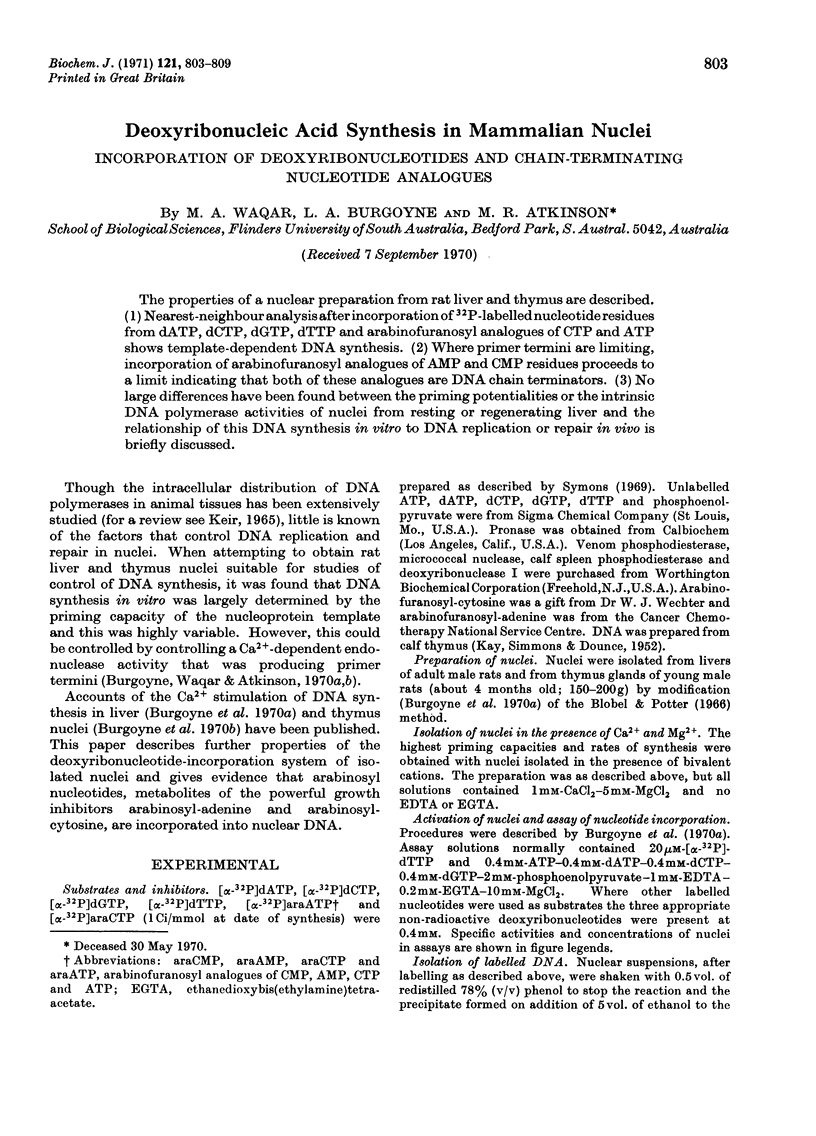
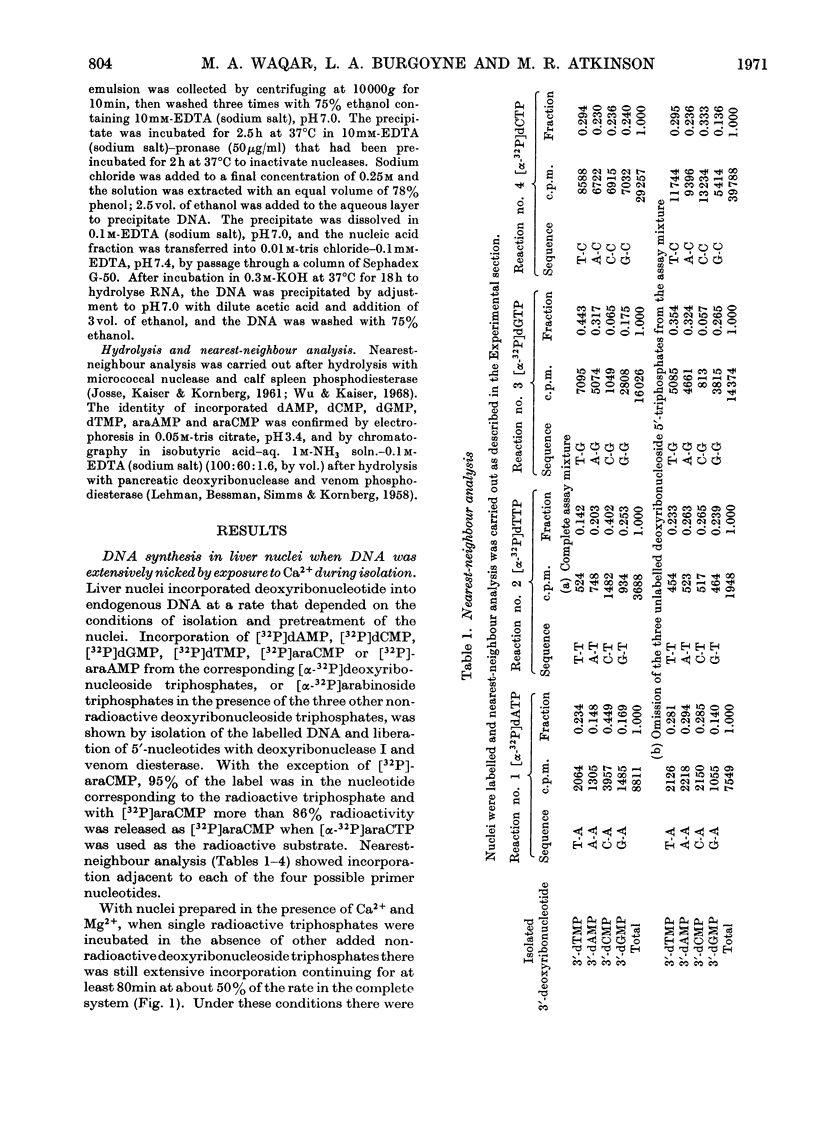
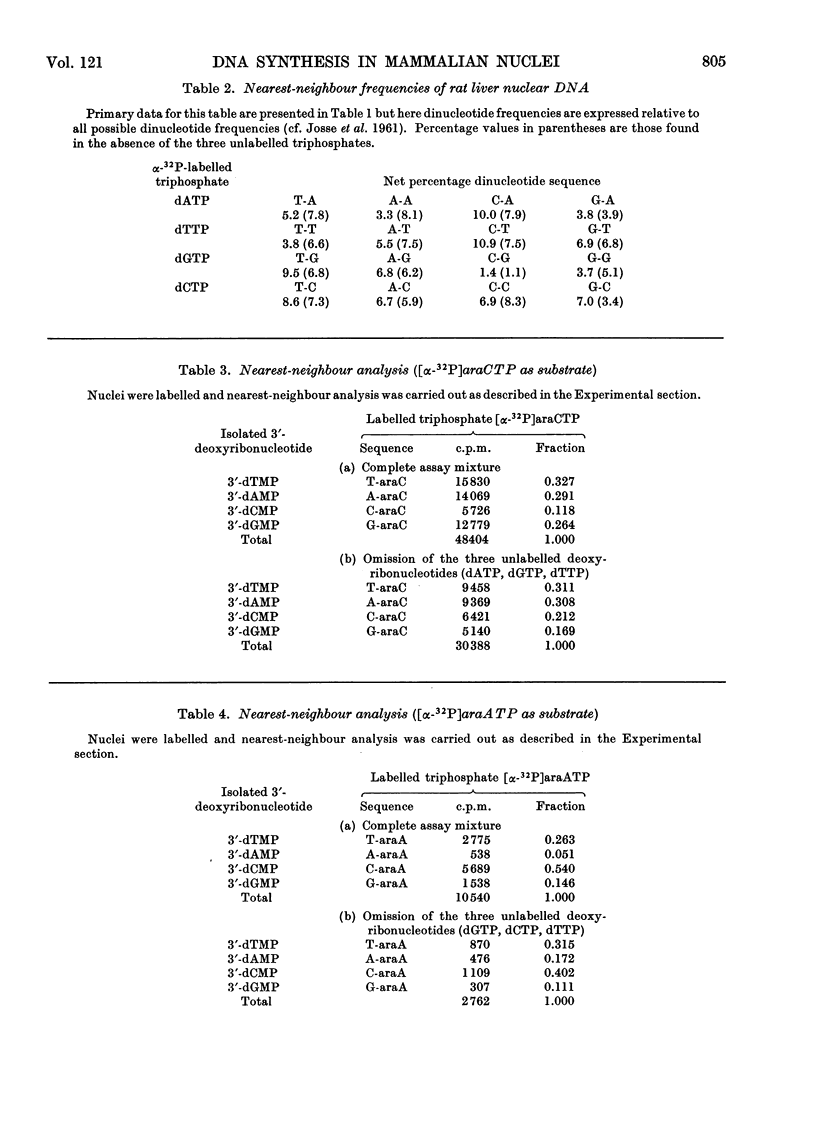
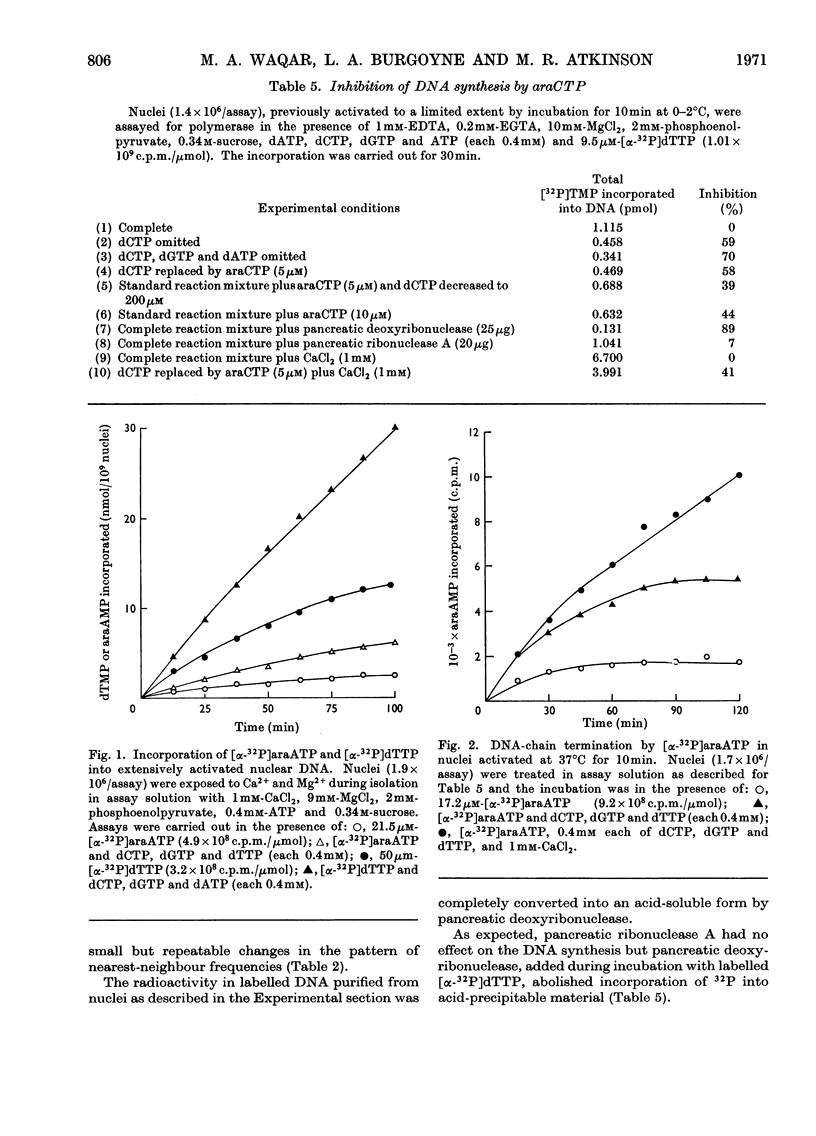
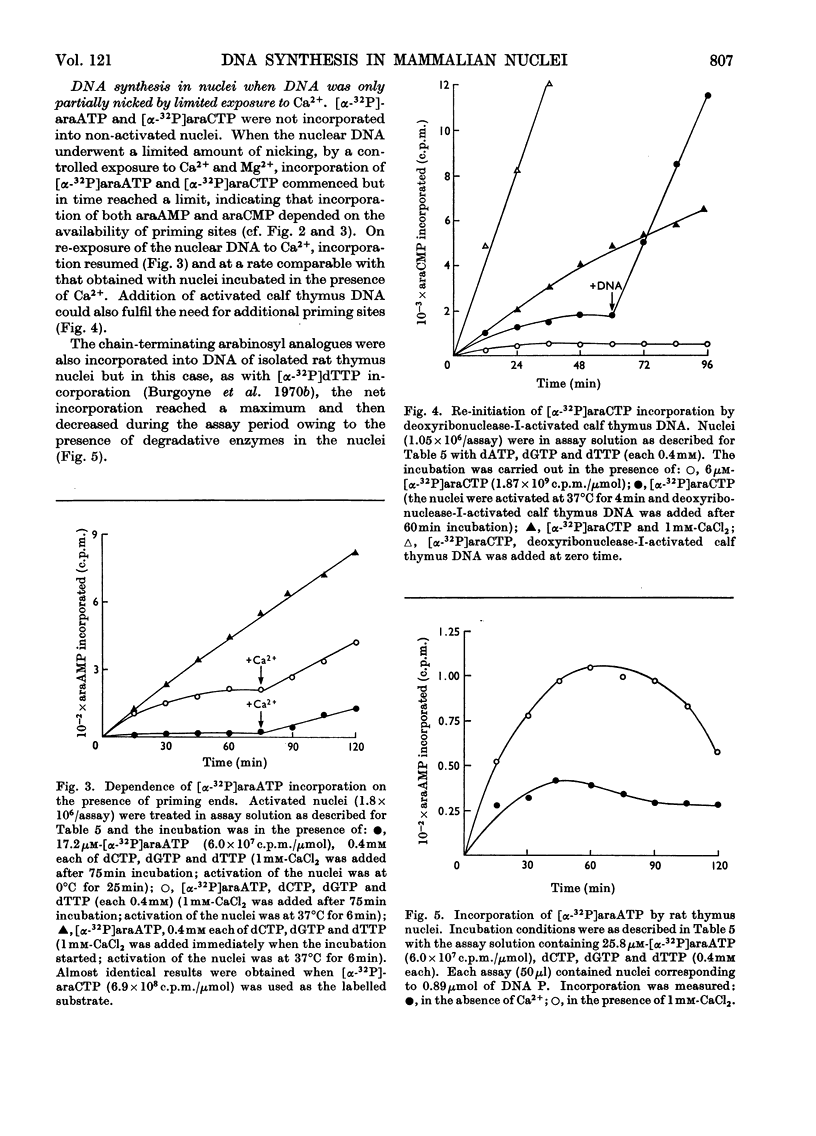
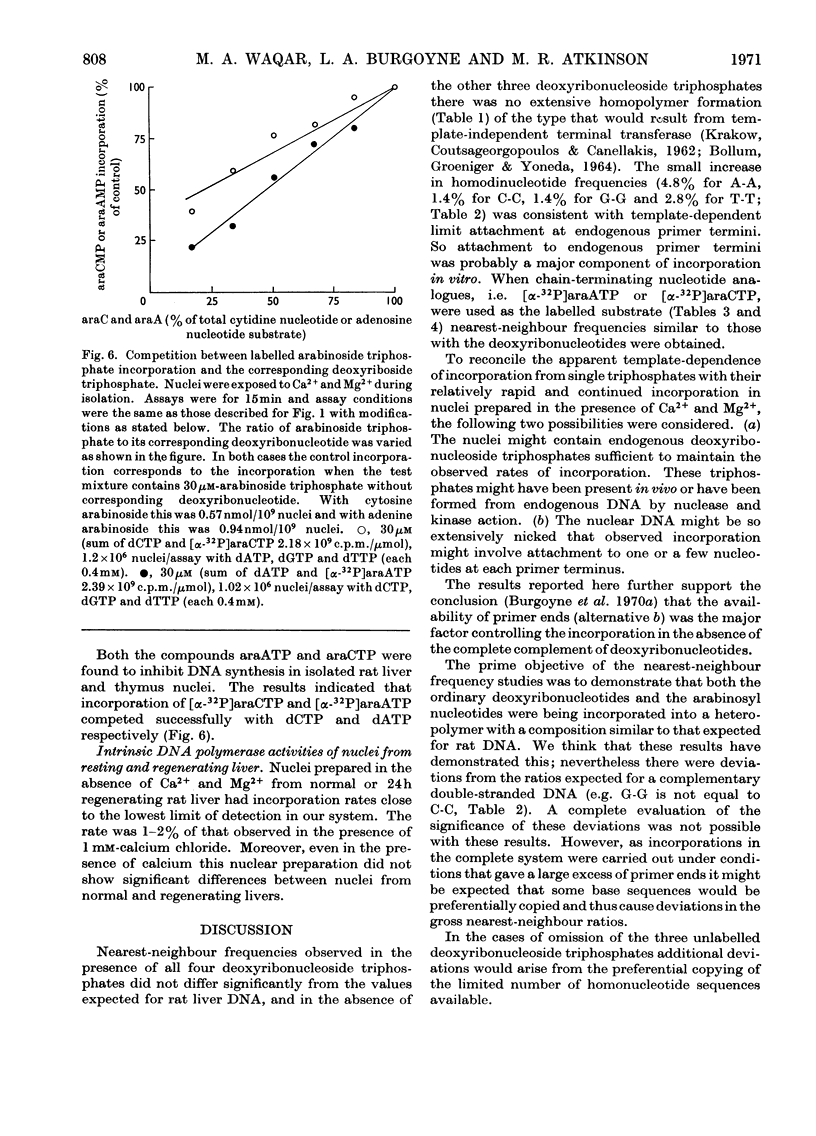
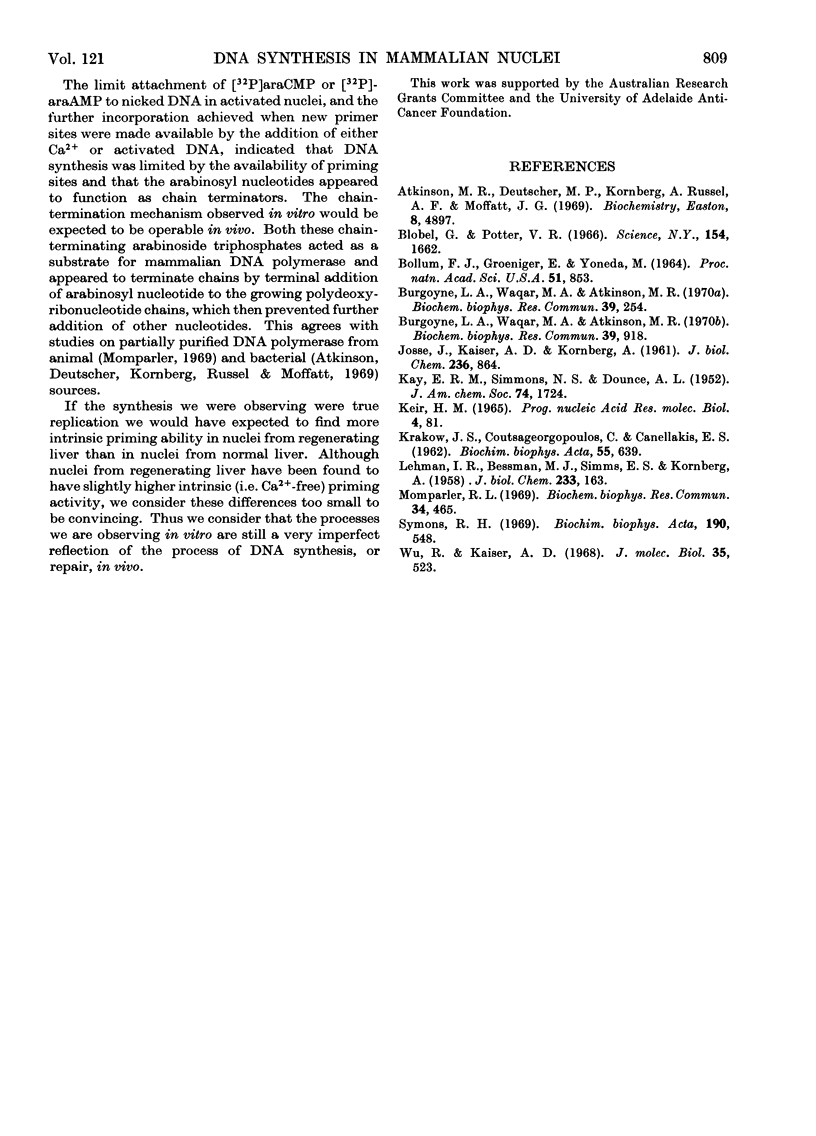
Selected References
These references are in PubMed. This may not be the complete list of references from this article.
- Atkinson M. R., Deutscher M. P., Kornberg A., Russell A. F., Moffatt J. G. Enzymatic synthesis of deoxyribonucleic acid. XXXIV. Termination of chain growth by a 2',3'-dideoxyribonucleotide. Biochemistry. 1969 Dec;8(12):4897–4904. doi: 10.1021/bi00840a037. [DOI] [PubMed] [Google Scholar]
- BOLLUM F. J., GROENIGER E., YONEDA M. POLYDEOXYADENYLIC ACID. Proc Natl Acad Sci U S A. 1964 May;51:853–859. doi: 10.1073/pnas.51.5.853. [DOI] [PMC free article] [PubMed] [Google Scholar]
- Blobel G., Potter V. R. Nuclei from rat liver: isolation method that combines purity with high yield. Science. 1966 Dec 30;154(3757):1662–1665. doi: 10.1126/science.154.3757.1662. [DOI] [PubMed] [Google Scholar]
- JOSSE J., KAISER A. D., KORNBERG A. Enzymatic synthesis of deoxyribonucleic acid. VIII. Frequencies of nearest neighbor base sequences in deoxyribonucleic acid. J Biol Chem. 1961 Mar;236:864–875. [PubMed] [Google Scholar]
- KRAKOW J. S., COUTSOGEORGOPOULOS C., CANELLAKIS E. S. Studies on the incorporation of deoxyribonucleic acid. Biochim Biophys Acta. 1962 May 14;55:639–650. doi: 10.1016/0006-3002(62)90842-9. [DOI] [PubMed] [Google Scholar]
- Keir H. M. DNA polymerases from mammalian cells. Prog Nucleic Acid Res Mol Biol. 1965;4:81–128. doi: 10.1016/s0079-6603(08)60785-0. [DOI] [PubMed] [Google Scholar]
- LEHMAN I. R., BESSMAN M. J., SIMMS E. S., KORNBERG A. Enzymatic synthesis of deoxyribonucleic acid. I. Preparation of substrates and partial purification of an enzyme from Escherichia coli. J Biol Chem. 1958 Jul;233(1):163–170. [PubMed] [Google Scholar]
- Symons R. H. Preparation of [alpha-32P]nucleoside and deoxynucleoside 5'-triphosphates from 32Pi and protected and unprotected nucleosides. Biochim Biophys Acta. 1969 Oct 22;190(2):548–550. doi: 10.1016/0005-2787(69)90105-1. [DOI] [PubMed] [Google Scholar]
- Wu R., Kaiser A. D. Structure and base sequence in the cohesive ends of bacteriophage lambda DNA. J Mol Biol. 1968 Aug 14;35(3):523–537. doi: 10.1016/s0022-2836(68)80012-9. [DOI] [PubMed] [Google Scholar]


